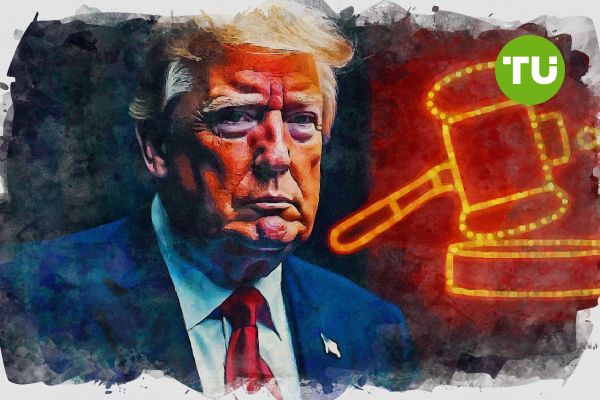Appeals court reinstates Trump tariffs
 Court pauses rollback of Trump’s ‘Liberation Day’ tariffs pending appeal
Court pauses rollback of Trump’s ‘Liberation Day’ tariffs pending appeal
The U.S. Court of Appeals in Washington, D.C., has extended its pause on a lower court ruling that invalidated President Donald Trump’s “Liberation Day” tariffs targeting Chinese goods.
The move allows the contested reciprocal tariffs and broader levies on Canada, Mexico, and China to remain in effect while the appeals process unfolds, reports Cryptopolitan.
The court stated Tuesday that it needed to reexamine whether Trump overstepped his authority under the International Emergency Economic Powers Act (IEEPA) and placed the matter on an expedited schedule for resolution this summer, citing the case’s “exceptional importance.”
Legal and political tensions escalate over use of IEEPA
The case centers on Trump’s unprecedented use of the 1977 IEEPA law—typically reserved for sanctions against hostile foreign regimes—to justify trade tariffs aimed at addressing the trade deficit and curbing fentanyl trafficking. A May 28 decision by the U.S. Court of International Trade found that Trump had exceeded his legal authority, ordering the White House to roll back the measures. But that ruling was quickly put on hold by the appeals court the next day.
Legal critics, including Scalia Law professor Ilya Somin and Liberty Justice Center’s Jeffrey Schwab, voiced disappointment, but expressed confidence that the final ruling will reject the use of emergency powers in this context. The administration, by contrast, praised the ruling as a “welcome development” that preserves ongoing trade negotiations.
Small businesses and states challenge legality of trade moves
The plaintiffs—comprising small businesses and a dozen states—argue that tariffs are not a valid tool under IEEPA, as neither trade deficits nor drug trafficking qualify as a “national emergency” by the law’s standards. They contend that the duties have imposed unfair burdens on U.S. importers and disrupted supply chains without legal basis. Meanwhile, sector-specific tariffs imposed under Section 232 of the Trade Expansion Act, which claims national security grounds, remain untouched by the current litigation.
According to JPMorgan, if the court ultimately eliminates the IEEPA-based tariffs and no further duties are added, the U.S. effective tariff rate would decline to around 5%, down from its recent highs but still double 2024 levels. The administration has hinted it is prepared to take the matter to the Supreme Court if necessary.
Recently we wrote that president Donald Trump’s abrupt reversal of most newly imposed tariffs may have sparked a historic market rally on Wednesday, but it’s unlikely to prevent a deeper correction in equities, Goldman Sachs warned in a note on Thursday.













































































































































